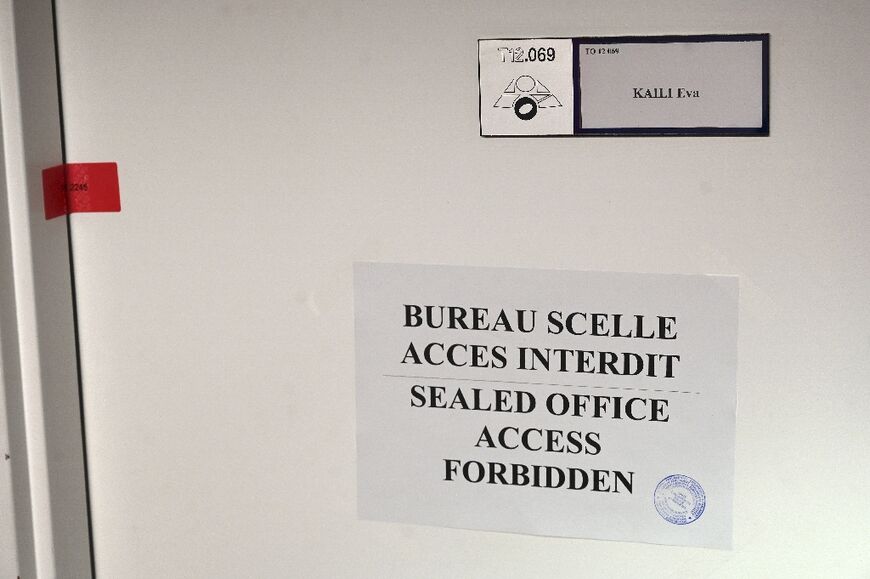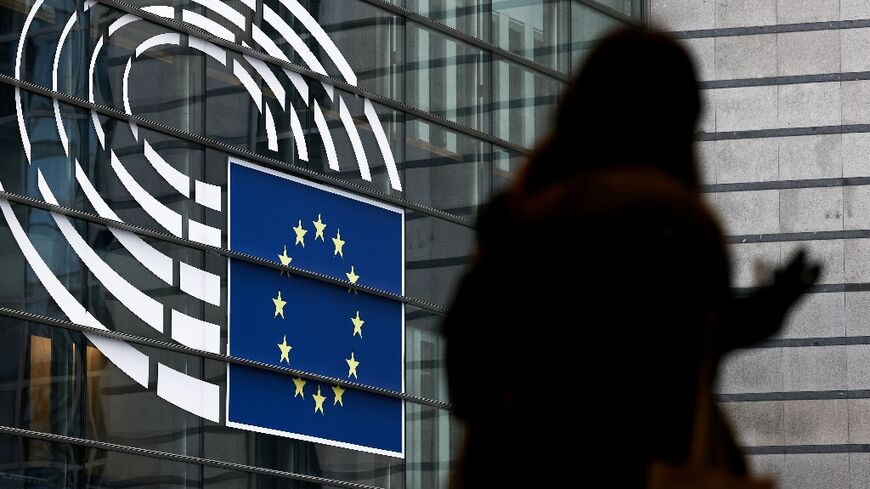EU parliament sacks vice president charged in Qatar bribe probe

The European Parliament sacked one of its vice presidents on Tuesday amid corruption accusations allegedly linked to World Cup host Qatar, as EU officials scrambled to contain a widening scandal.
The assembly's MEPs voted 625 to one to strip Greek socialist MEP Eva Kaili of her vice presidential role, despite her lawyer declaring that she was innocent and "has nothing to do with Qatar's bribes".
The government of Qatar has denied any connection to any wrongdoing in the case.
Kaili's arrest came during a series of police raids across homes and offices in and near Brussels in which at least 1.5 million euros ($1.6 million) in cash was seized.
As the 44-year-old former TV news presenter sat in a Brussels jail cell, her colleagues in the Strasbourg parliament scrambled to distance themselves from the scandal.
The parliament's president, Maltese conservative Roberta Metsola, called the sacking vote after reaching agreement with the leaders of the parliament's political groupings, amid fears the scandal could spread.
On Wednesday, a Belgian judge will decide whether to maintain Kaili and three co-accused in custody pending trial.
She was arrested last week during a series of raids by Belgian graft investigators on the homes and offices of several MEPs and their assistants or associates.
Kaili is the only serving MEP to have been charged. But several more have had their offices put under police seal while investigations continue.
- Bags of cash-
A Belgian judicial source, confirming reports in Belgian newspapers Le Soir and Knack, said 600,000 euros were found at the home of one suspect, Italian former MEP Pier Antonio Panzeri; 150,000 euros in Kaili's flat; and 750,000 in her father's hotel room.
Because some of the cash was found in Kaili's home, a judicial source said, Belgium concluded that she was caught red-handed, thus preventing her from asserting immunity from prosecution normally extended to serving MEPs.
A Belgian judicial source told AFP that investigators believe that figures representing Gulf monarchy Qatar had been paying off European politicians to burnish the country's image.
Qatar is a key energy supplier to Europe, and plays an important intermediary role in several diplomatic tangles.
But it has also been criticised for the alleged mistreatment of migrant workers, most notoriously those who built the World Cup stadiums.
Kaili visited Qatar just before the competition and called it a "front-runner in labour rights", to the consternation of activists and some of her colleagues. She has also defended Qatar's quest to win EU visa waivers for its citizens.
Qatar denies any involvement in European corruption.
"Any claims of misconduct by the State of Qatar are gravely misinformed," an official told AFP.
Kaili's lawyer Michalis Dimitrakopoulos told AFP that she "did not know of the existence" of the cash found at her home.
Her lawyer said she was "innocent", and he denied what he said were "false rumours" that she had received bribes from Qatar.
He said her partner, Francesco Giorgi, could have "answers about the existence of this cash."
But Brussels has been rocked by the claims, and Metsola, defending the integrity of the parliament, has sought to portray the alleged bribes as an assault on democracy.
Some MEPs braced for more revelations. "I'm fearful that what we're seeing here is just the tip of the iceberg," warned German social democrat Rene Repasi.
Metsola also promised Qatar's EU visa waiver bid would be sent back to a parliamentary committee for further scrutiny, delaying or derailing the measure.
- Further allegations -
Kaili was one of six people arrested. Four have been charged with "criminal organisation, corruption and money laundering" and two released.
One of those released was Luca Visentini, the general secretary of the International Trade Union Confederation, a global labour body that has pushed Qatar on labour rights.
"Should any further allegations be made, I look forward to the opportunity to refute them, as I am innocent of any wrongdoing," he said in an ITUC statement.
The European Parliament is expected to approve a second text calling for more transparency to deter corruption in European institutions, which will go to a vote on Thursday.




